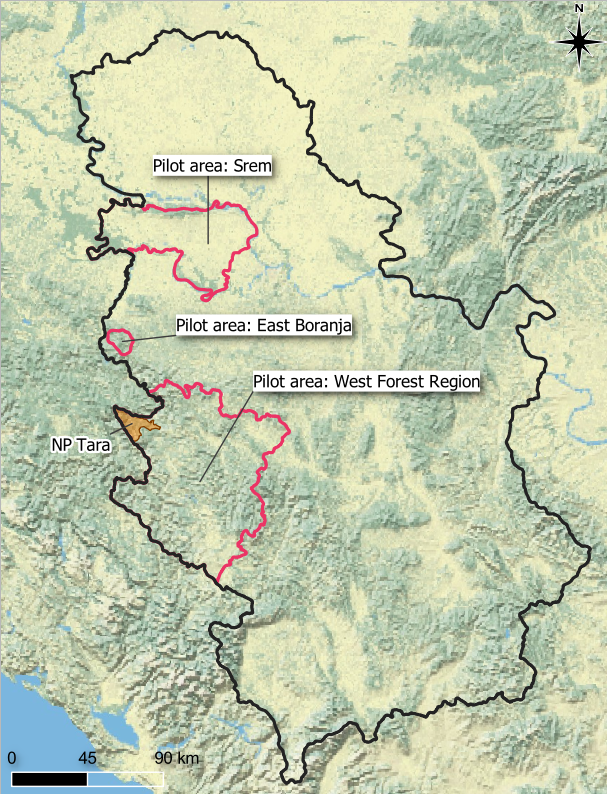Summary
ANKLIWA-DS aims to improve the economic and ecological stability of Serbia's forests through the introduction of improved planning and monitoring approaches and the consistent implementation of close to nature forest management. Strategies for adaptation and sustainable forest management to climate change for the forests of Serbia will be developed, which serve as future purposeful planning strategies for the management of German forests, as the climate conditions in Germany will be similar in the near future. ANKLIWA-DS contributes to the sustainable use of forest resources with the aim of maintaining healthy forest ecosystems and diverse ecosystem services.
Besides sustainability, ANKLIWA-DS will make an important contribution to the bioeconomy. In the past, an increasing number of flooding and icebreaking damages as well as summer dry spells were observed in Serbia, which were accompanied by large forest fire events. The accumulation of these damaging events is taken into account in the development of new planning approaches for close to nature forest management, taking into account the increasingly diverse demands of society. Especially the inhabitants of rural areas with low income opportunities profit economically from stable and productive forests. The latest scientific findings from ANKLIWA-DS aim to build a bio-economic bridge between ecology and efficient forest management in order to master the challenges of the future in Serbia and also in Germany.
Pilot regions and target species
The project will focus on two forest regions:
The North forest region (Vojvodina) in lowland with continental climate dominated by pedunculate oak (Quercus robur)
The West forest region with higher elevations, mountain ranges and cooler climate dominated by European beech (Fagus sylvatica)
And we aim to provide decision makers in policy and owners with an ecological-economic assessment to contribute to a low-carbon bioeconomy under climate change


